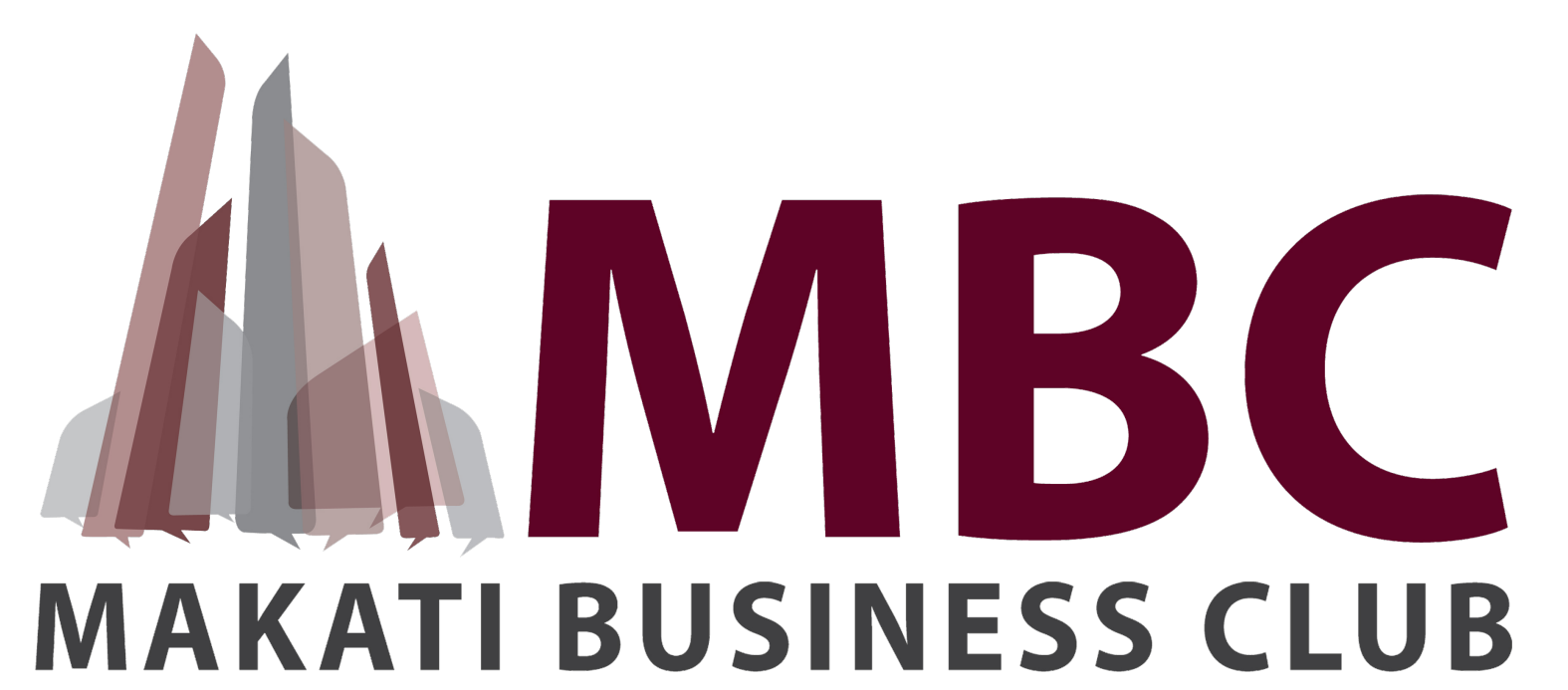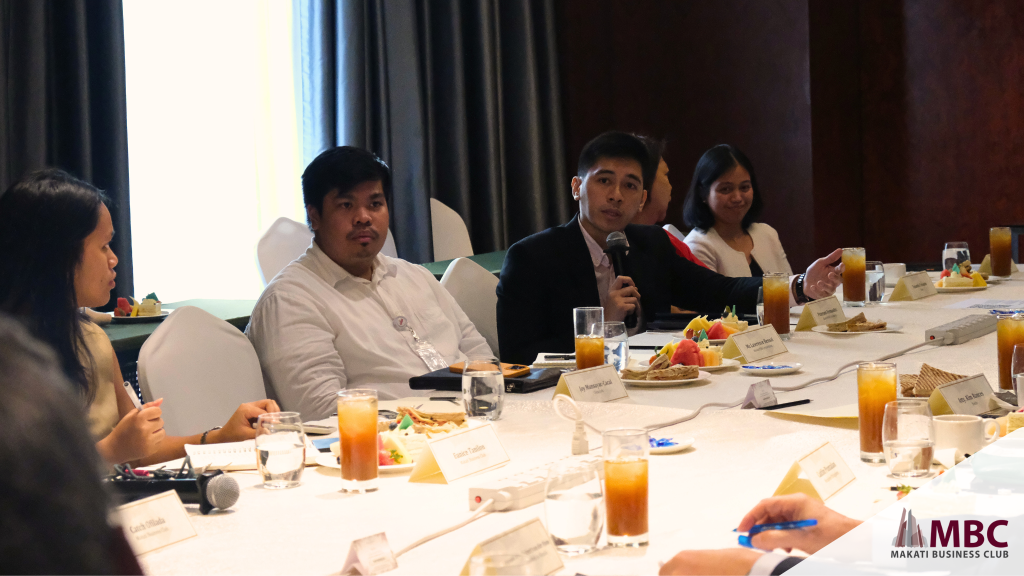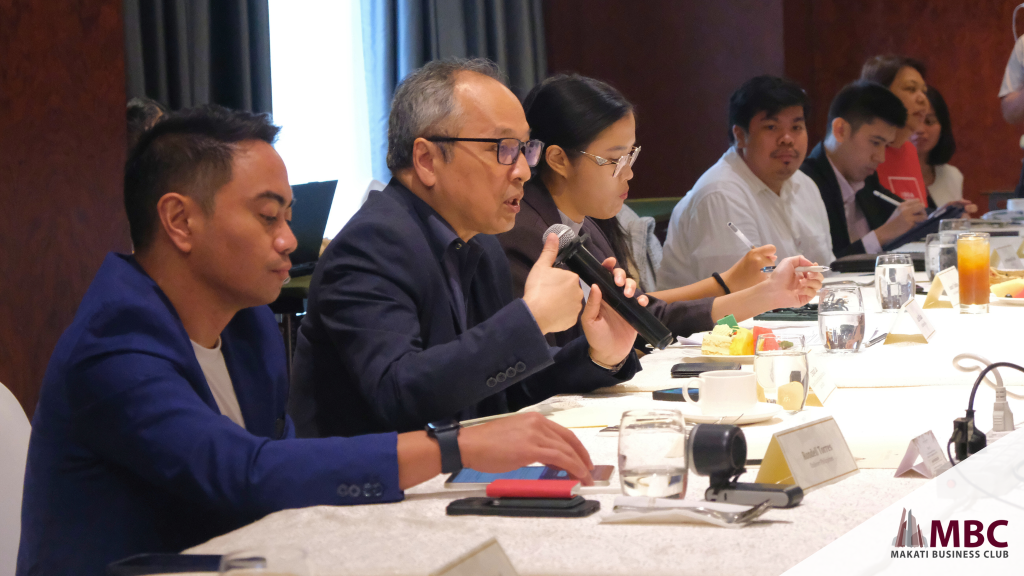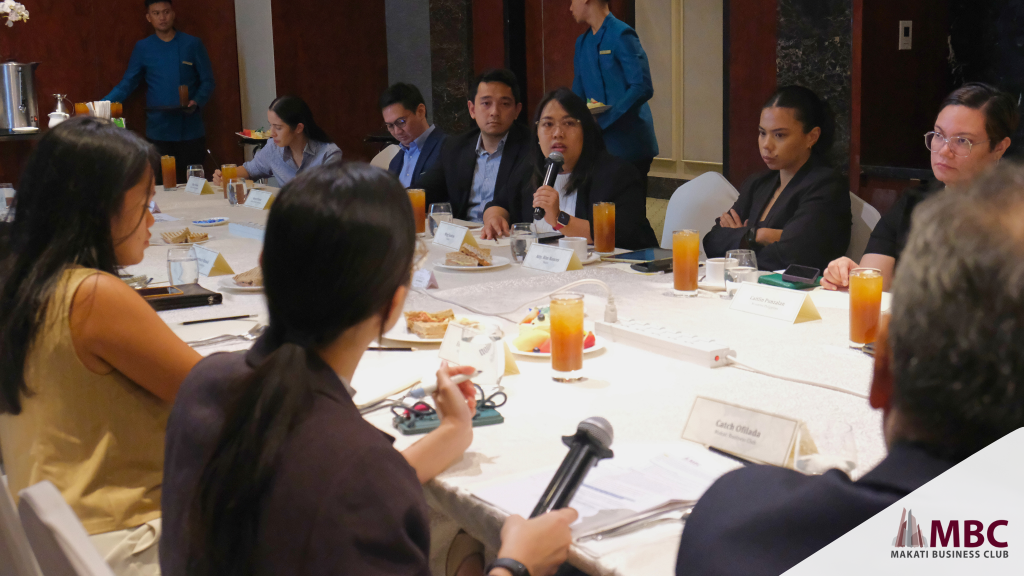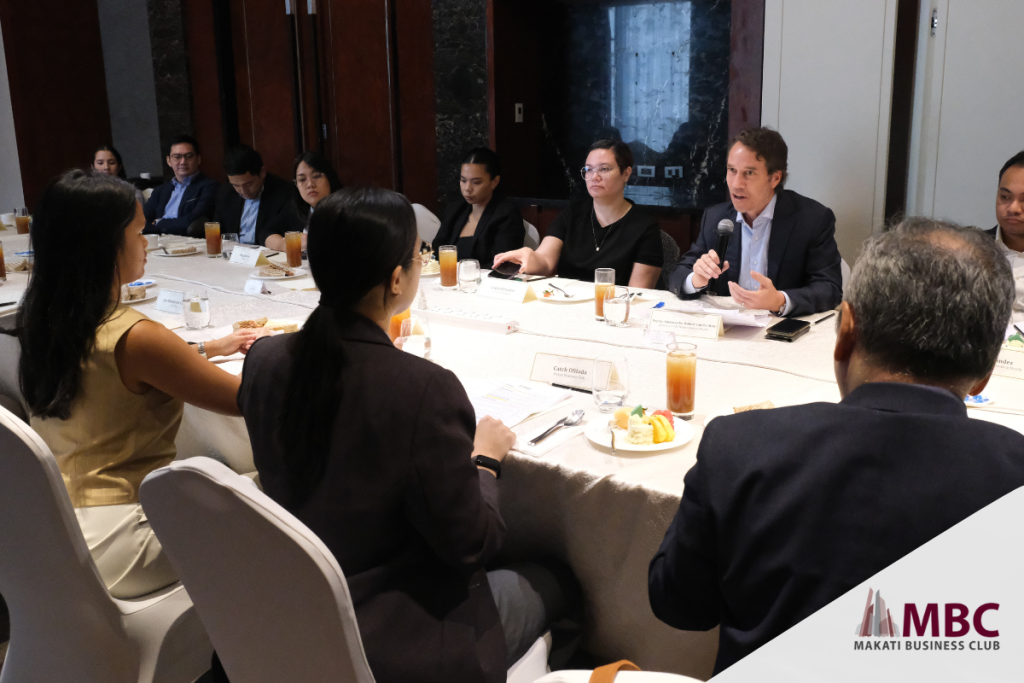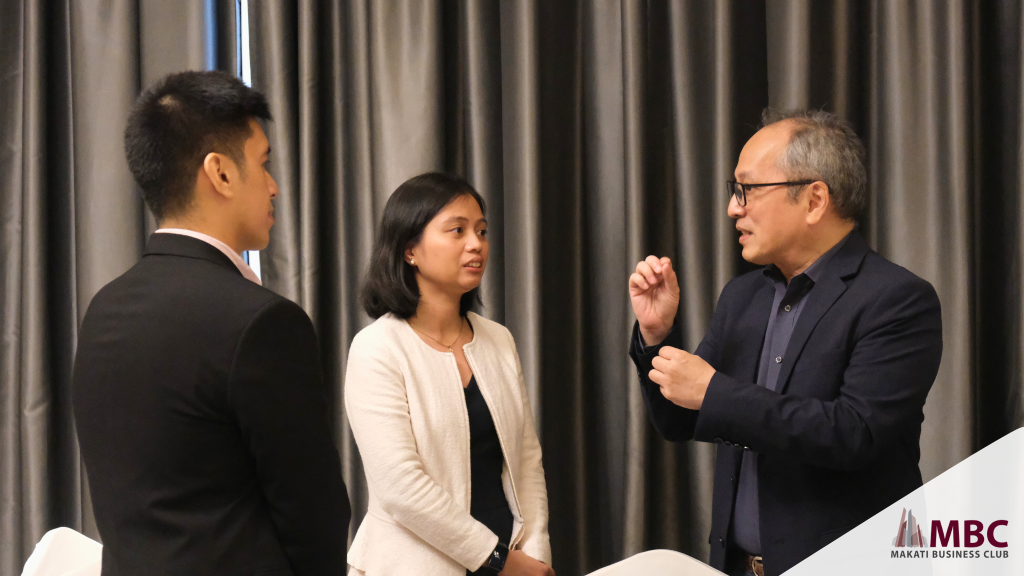Sustainability Executives and Dutch,
Philippine Experts discuss Circular Economy and Extended Producer Responsibility
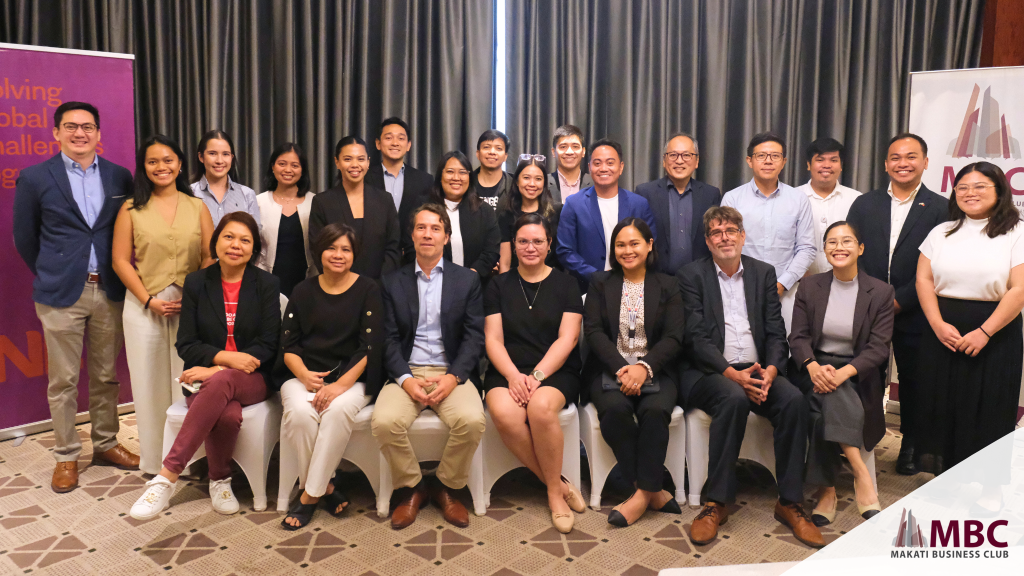
24 May 2024 – The Makati Business Club held a discussion on Extended Producer Responsibility and Circular Economy, particularly on House Bills 8791 and 9791 which aims to adopt a circular economy framework for the Philippines. Sustainability and Government Affairs executives from Alaska Milk, Bank of the Philippine Islands (BPI), CEMEX Holdings Philippines, Globe Group, JG Summit Holdings Inc., Jollibee Group of Companies, Mondelez International, Nestle, PLDT, Smart Communications, Inc., and Unilever were present.
Crispian Lao, noted Circular Economy expert, helped guide the discussion along with Arnold Tukker from the Leiden-Delft-Erasmus Centre for Sustainability, and Rene van Berkel of the EU SWITCH-Asia Programme.
One of the main points raised during the discussion was the meaning of circular economy and how to achieve it, coming from various perspectives and contexts. Rene van Berkel said, “I think we have to recognize that circular economy means very different things to different people.”
Meg Santos (Nestle) pointed out how circularity can be looked at from a regional or global scale. “If you look at how our supply chains are designed right now, we don’t exactly source 100% of our packaging or even our raw materials locally, it’s a regional supply chain.”
Crispian Lao talked about how important it is to assess the readiness of the local infrastructure for a circular economy. He says, “When you look at circularity, we have to look at it from a whole perspective, circular economy needs to work in the context of the local framework and the local infrastructure that is available.”
He notes on infrastructure, “While we cannot fully go circular now, we can do circularity with ‘feedback loops’ by giving ourselves some time and allowing infrastructure like refuse derived fuel (RDF), waste-to-fuel, waste-to-energy to be a part of circularity before we transition to a fully circular economy.”
The discussion also emphasized the significance of collaboration among the public and private sectors. “Government and business should work on a system that is efficient and works for everyone” said Arnold Tukker. Deputy Head of Mission Robert van der Hum from the Netherlands Embassy in Manila also echoed the same sentiment saying, “I believe in the importance of public and private discussions. Coming from the Netherlands where there is open conversation between government, private sector, and academia, I think that is what we really should and want to promote.”
MBC supports initiatives that make it easier for the private sector to comply with environmental laws, such as the EPR Act of 2022, and to adopt circular economy models.
This session is an initiative under MBC’s Circular Economy Program which is in partnership with the Embassy of the Netherlands in Manila.
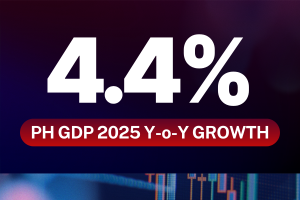
PH Economy Grew at 4.4% in 2025, Lowest Post-Pandemic Growth Recorded
PH Economy Grew 4.4% in 2025; Lowest Post-Pandemic Growth Recorded 29 January 2026 — Philippine Gross Domestic Product grew by 3.0% in the fourth quarter
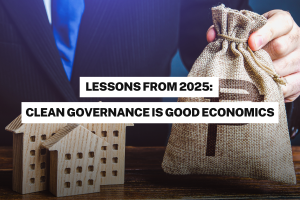
Lessons from 2025: Clean Governance is Good Economics
Lessons from 2025: Clean Governance is Good Economics 26 January 2026 – 2025 started off with a major controversy surrounding the National Budget, which had
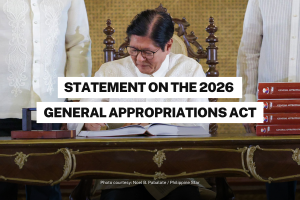
Statement on the 2026 General Appropriations Act
Statement on the 2026 General Appropriations Act 05 January 2026 – The 2026 General Appropriations Act, signed today by the President, represents an improvement compared
